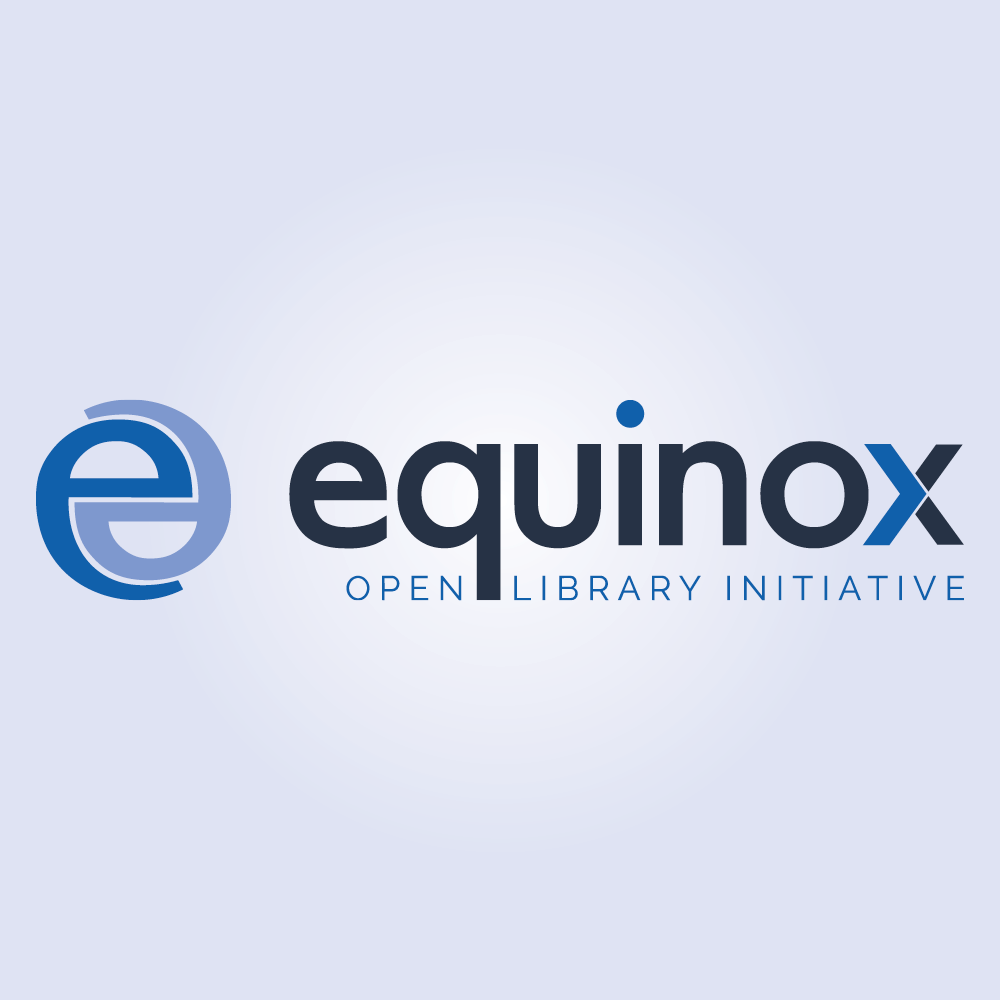CORAL Online Summit to be Hosted by Equinox Open Library Initiative
REGISTRATION: https://www.equinoxoli.org/coral-online-summit/
Duluth, Ga., June 7, 2021: Equinox Open Library Initiative is pleased to announce the upcoming CORAL Online Summit on Wednesday, June 9, 2021. The free event is an opportunity for current and prospective users of the CORAL electronic resources management system to learn about CORAL and hear about best practices from CORAL community members. Registration link and full agenda are available at: https://www.equinoxoli.org/coral-online-summit/.
Presenters will cover how CORAL ERM is used in public, academic, and special libraries. Open discussion at the end of the event will be available for attendees to share experiences and feedback.
“Have you ever wondered if CORAL ERM could help with managing electronic resources at your library? This summit is an opportunity to learn more and discuss questions,” said Jennifer Weston, Product and Education Specialist at Equinox Open Library Initiative and coordinator of the CORAL Online Summit. “Sessions will include presenters currently employing CORAL ERM at their institutions as well as information about how to get involved with the community.”
CORAL ERM is used by libraries and institutions worldwide for management of electronic resources. The CORAL project is led by the CORAL ERM Steering Committee and the software is developed and maintained by community contributions to the project. Earlier this year, Equinox Open Library Initiative awarded the CORAL ERM Steering Committee with the Equinox Community Grant.
“The CORAL Steering Committee is excited to present the CORAL Online Summit and we invite you to join us on June 9th to experience what CORAL offers,” said Lisa Carlucci, Executive Director, Equinox Open Library Initiative. “CORAL is open source, modular, and flexible, which allows libraries to implement a customized, affordable solution for managing electronic resources, licensing, usage, and more.”
To stay up to date with the latest events and training opportunities, follow Equinox Open Library Initiative on Facebook, Twitter, LinkedIn and Vimeo.
To receive news directly in your inbox: https://www.equinoxOLI.org/#signup
For more information:
Laura Barry
Communications Coordinator
Equinox Open Library Initiative, Inc.
EquinoxOLI.org
laura.barry@equinoxOLI.org
877.OPEN.ILS (877.673.6457)
About Equinox Open Library Initiative
Equinox Open Library Initiative provides innovative open source software for libraries of all types and delivers extraordinary service at exceptional value. As the successor to Equinox Software, Inc., Equinox Open Library Initiative builds upon more than a decade of trusted service and technical expertise, providing consulting services, software development, hosting, training, and support for Evergreen ILS, Koha ILS, and other open source library software. To learn more, please visit https://www.equinoxOLI.org. For Equinox Library Services Canada, please visit https://www.equinoxOLI.ca.
About CORAL
CORAL ERM is an electronic resources management system consisting of interoperable modules designed around the core components of managing electronic resources for libraries and other organizations. CORAL is available as a free, open source program. To learn more please visit: http://coral-erm.org/
Equinox Migrates Wainfleet Township Public Library to Evergreen ILS
Duluth, Ga., May 24, 2021: Equinox is pleased to announce the migration of Wainfleet Township Public Library of Wainfleet, Ontario to Evergreen ILS, as it joins the Libraries in Niagara Cooperative (LiNC) and the international Evergreen ILS community.
Wainfleet Township Public Library’s migration encompassed 4,106 patrons and 23,575 bibliographic records. As part of the migration Equinox provided staff training, educational resources, project management, implementation, and data services, including configuration of policies and settings. Equinox also provided bibliographic deduplication services as part of the migration.
LiNC was established in 2010 between four public libraries and one college library and has since grown to ten organizations. In 2017, the cooperative began resource sharing across the membership. “We are delighted to reach the ten library level in our consortium,” said Julie Andrews, LiNC Chair. “With the assistance of Equinox, we are able to share the collections of all ten libraries with our members, widening our scope and ability to deliver resources.”
“It was a privilege to work with Wainfleet and their LiNC colleagues,” said Erica Rohlfs, Senior Implementation Project Manager at Equinox. “Wainfleet looked forward to their migration and becoming part of LiNC. The migration discussions were always lively and full of great questions. We are excited to collaborate with Wainfleet as they join LiNC.”
Follow Equinox Open Library Initiative on Facebook, Twitter, LinkedIn and Vimeo for the latest updates. To receive news directly in your inbox: https://www.equinoxOLI.org/#signup
For more information:
Laura Barry
Communications Coordinator
Equinox Open Library Initiative, Inc.
EquinoxOLI.org
laura.barry@equinoxOLI.org
877.OPEN.ILS (877.673.6457)
About Equinox Open Library Initiative
Equinox Open Library Initiative provides innovative open source software for libraries of all types and delivers extraordinary service at exceptional value. As the successor to Equinox Software, Inc., Equinox Open Library Initiative builds upon more than a decade of trusted service and technical expertise, providing consulting services, software development, hosting, training, and support for Evergreen ILS, Koha ILS, and other open source library software. To learn more, please visit https://www.equinoxOLI.org. For Equinox Library Services Canada, please visit https://www.equinoxOLI.ca.
About Evergreen
Evergreen Integrated Library System is an award winning and trusted library solution used by more than 1,800 libraries worldwide. Evergreen ILS is a web-based and mobile-friendly system which provides attractive, easy to use interfaces for library acquisitions, administration, cataloging, circulation, OPAC, reports, course reserves, and serials functionality.
Evergreen ILS is an enterprise level system designed to manage a scalable catalog shared across libraries, including large public and academic library consortia. While designed for large collections, Evergreen is suitable for libraries of any size and type from government libraries to museum and special library collections. Its flexibility enables libraries to configure policies and settings that work best for their communities and to maintain ownership of their library and systems data.
Evergreen differs from other library management systems in that there are no licensing fees. The software is released under the GNU General Public License (GPL) version 3.0 or higher. For more information about Evergreen: https://www.equinoxoli.org/products/evergreen/.
CORAL Online Summit
June 9, 2021 (10am – 12pm EDT). Join us for the CORAL Online Summit! Prospective and active users of the CORAL electronic resources management system are invited to learn about CORAL and discuss best practices. Presenters will cover how CORAL is used in public, academic, and special libraries. Open discussion at the end of the event will be available to share experiences and feedback.
If you are seeking a tool to help manage electronic resources and wondering whether CORAL would be useful at your library, this is the place to find out! Join us and bring your questions.
See you at the CORAL Online Summit on June 9th! Full agenda available here.

equinoxEDU: Spotlight on the Koha Housebound module
May 19, 2021 (1-2 pm ET). Join us to learn about the Housebound Readers module in Koha. The Housebound module helps facilitate home delivery services to provide accessible library services to your patrons. This webinar will provide an overview of how to configure the Housebound module, including how to manage deliverers and selectors for home delivery materials. Register.
Open Source Twitter Chat with Jennifer Weston #ChatOpenS
Equinox Open Library Initiative Awards Center for Khmer Studies the Equinox Open Source Grant
Duluth, Ga., April 27, 2021: Equinox Open Library Initiative is pleased to announce that the Center for Khmer Studies, with offices located in New York as well as Phnom Penh and Siem Reap, Cambodia, is one of two grant recipients of the Equinox Open Source Grant. The Equinox Open Source Grant program provides migration, implementation, hosting, and support of the Koha Integrated Library System to eligible libraries, archives, museums, and other educational, cultural, and information organizations. The grant was inspired by the vibrant open source community and the belief that every community deserves to benefit from an accessible and thriving library.
“We are extremely honored to receive Koha migration and hosting services from Equinox,” said Sivleng Chhor, Head Librarian at the Center for Khmer Studies. “We are looking forward to expanding access to our library and catalog while supporting our community and mission.”
The Center for Khmer Studies promotes research, teaching and public service pertaining to the social sciences, arts and humanities in Cambodia and the Mekong region. Their library opened in 2001 and now encompasses around 19,000 titles. The Center for Khmer Studies not only supports academic researchers but is open to the general public.
“We are excited and very much looking forward to working with the Center for Khmer Studies,” said Rogan Hamby, Data and Project Analyst at Equinox. “The Center is home to a strong and unique collection, combined with an amazing staff. It’s a special opportunity to partner with them through the Equinox Open Source Grant and provide the tools to bring an already amazing institution to a new level.”
Follow Equinox Open Library Initiative on Facebook, Twitter, LinkedIn and Vimeo for the latest updates.
To receive news directly in your inbox: https://www.equinoxOLI.org/#signup
For more information:
Laura Barry
Communications Coordinator
Equinox Open Library Initiative, Inc.
EquinoxOLI.org
laura.barry@equinoxOLI.org
877.OPEN.ILS (877.673.6457)
About Equinox Open Library Initiative
Equinox Open Library Initiative provides innovative open source software for libraries of all types and delivers extraordinary service at exceptional value. As the successor to Equinox Software, Inc., Equinox Open Library Initiative builds upon more than a decade of trusted service and technical expertise, providing consulting services, software development, hosting, training, and support for Evergreen ILS, Koha ILS, and other open source library software.
To learn more, please visit https://www.equinoxOLI.org.
For Equinox Library Services Canada, please visit https://www.equinoxOLI.ca.
About The Center for Khmer Studies (CKS)
The Center for Khmer Studies is a non-governmental and non-profit organization. CKS facilitates research and international exchange through programs that increase understanding of Cambodia and its region both within Cambodia and at American universities. CKS maintains the largest public academic library in Cambodia outside of Phnom Penh, the capital of Cambodia. To learn more about what we do, please visit https://khmerstudies.org/.
About Koha
Created in 1999 by Katipo Communications for the Horowhenua Library Trust in New Zealand, Koha is the first open source Integrated Library System to be used worldwide. The software is a full-featured ILS with a dual-database design (search engine and RDBMS) built to be compliant with library standards. Koha’s OPAC, staff, and self-checkout interfaces are all web applications. Distributed under the General Public License (GPL), libraries are free to use and install Koha themselves or to purchase support and development services. For more information on Koha, please visit https://koha-community.org.
Equinox Open Library Initiative Awards Vermont Jazz Center the Equinox Open Source Grant
Duluth, Ga., April 26, 2021: Equinox Open Library Initiative is pleased to announce that the Vermont Jazz Center in Brattleboro, Vermont is one of two grant recipients of this year’s Equinox Open Source Grant. The Equinox Open Source Grant program provides migration, implementation, hosting, and support of the Koha Integrated Library System to eligible libraries, archives, museums, and other educational, cultural, and information organizations. The grant was inspired by the vibrant open source community and the belief that every community deserves to benefit from an accessible and thriving library.
“The Equinox team were deftly helpful in educating our team regarding Koha’s tremendous abilities. The more we investigated, the more it became clear that Equinox and their mastery of Koha was a hand-in-glove ILS solution that would serve our organization’s goals,” said Eugene Uman, Director of the Vermont Jazz Center. “We look forward to working with Equinox to make our holdings accessible to a broad demographic of users.”
The Vermont Jazz Center’s history reaches back to the early 1970’s, when its founding director, jazz guitarist Attila Zoller, would invite musicians and students from New York City to unwind at his home in Newfane, Vermont. The organization incorporated in 1974 and was awarded 501(c)(3) non-profit status in 1989.
“It is exciting to help the Vermont Jazz Center establish their Koha database,” said Erica Rohlfs, Senior Implementation Project Manager at Equinox. “The Vermont Jazz Center offers literature, artist interviews, educational events, workshops, festivals, and concerts to music enthusiasts worldwide. Koha will help give their invaluable resources more exposure, searchability, and public accessibility.”
Follow Equinox Open Library Initiative on Facebook, Twitter, LinkedIn and Vimeo for the latest updates.
To receive news directly in your inbox: https://www.equinoxOLI.org/#signup
For more information:
Laura Barry
Communications Coordinator
Equinox Open Library Initiative, Inc.
EquinoxOLI.org
laura.barry@equinoxOLI.org
877.OPEN.ILS (877.673.6457)
About Equinox Open Library Initiative
Equinox Open Library Initiative provides innovative open source software for libraries of all types and delivers extraordinary service at exceptional value. As the successor to Equinox Software, Inc., Equinox Open Library Initiative builds upon more than a decade of trusted service and technical expertise, providing consulting services, software development, hosting, training, and support for Evergreen ILS, Koha ILS, and other open source library software.
To learn more, please visit https://www.equinoxOLI.org.
For Equinox Library Services Canada, please visit https://www.equinoxOLI.ca.
Vermont Jazz Center
Vermont Jazz Center (VJC) is a 501(c)3, non-profit jazz programming and education institution that provides high quality jazz to a rural area in Southeastern Vermont. VJC’s history reaches back to the early 1970s, when its founding Director, jazz guitarist Attila Zoller, would invite musicians and students from New York City to unwind at his home in Newfane, Vermont. The organization incorporated in 1974 and was awarded 501(c)(3) non-profit status in 1989. To learn more about VJC please visit https://vtjazz.org/.
About Koha
Created in 1999 by Katipo Communications for the Horowhenua Library Trust in New Zealand, Koha is the first open source Integrated Library System to be used worldwide. The software is a full-featured ILS with a dual-database design (search engine and RDBMS) built to be compliant with library standards. Koha’s OPAC, staff, and self-checkout interfaces are all web applications. Distributed under the General Public License (GPL), libraries are free to use and install Koha themselves or to purchase support and development services. For more information on Koha, please visit https://koha-community.org.
Equinox Launches New Website Featuring Open Source Library Products, Services, and Education
Duluth, Ga., April 20, 2021: Equinox Open Library Initiative, Inc., proudly announces the launch of its newly designed website https://www.equinoxOLI.org, featuring open source library products, services, and educational resources. Equinox Open Library Initiative, the successor to Equinox Software, Inc., celebrates fifteen years as a small business delivering “Extraordinary Service. Exceptional Value” to libraries worldwide. Equinox provides innovative open source software for libraries and consortia of all types, serving academic, public, school, corporate, cultural, and government organizations. The new website serves as the central place for current news from Equinox, information about open source library software, including Evergreen, Koha, Fulfillment, and CORAL, and details and announcements regarding Equinox’s grants, programs, and community events.
“When you choose Equinox, you’re choosing a mission-driven small business with a proven record of technical expertise and outstanding service,” said Lisa Carlucci, Executive Director. “As we launch the new website and celebrate this important milestone, we are deeply grateful to the libraries, consortia, and community partners who have trusted Equinox to provide best-in-class library technologies.”
In addition to open source products, Equinox offers library consulting, training, and technology services. Consulting topics include workflow analysis, process improvement, consortial policy evaluation and management, web design, custom training sessions and workshops, IT services and support, and data services.
“Our new website highlights our services and programs contributing to library open source software and infrastructure,” said Galen Charlton, Implementation and IT Manager at Equinox. “We hope that libraries and community members find it useful as a hub for finding open source resources and learning more about Equinox.”
Follow Equinox Open Library Initiative on Facebook, Twitter, LinkedIn and Vimeo for the latest updates.
To receive news directly in your inbox: https://www.equinoxOLI.org/#signup
About Equinox Open Library Initiative
Equinox Open Library Initiative provides innovative open source software for libraries of all types and delivers extraordinary service at exceptional value. As the successor to Equinox Software, Inc., Equinox Open Library Initiative builds upon more than a decade of trusted service and technical expertise, providing consulting services, software development, hosting, training, and support for Evergreen ILS, Koha ILS, and other open source library software. To learn more, please visit https://www.equinoxOLI.org/.
For more information:
Laura Barry
Communications Coordinator
Equinox Open Library Initiative, Inc.
EquinoxOLI.org
laura.barry@equinoxOLI.org
877.OPEN.ILS (877.673.6457)
Open Source Twitter Chat with Guest Moderator Becky Yoose #ChatOpenS
April 12, 2021 (12-1pm ET). Join us on Twitter with the hashtag #ChatOpenS as we discuss cybersecurity with Becky Yoose of LDH Consulting Services.





